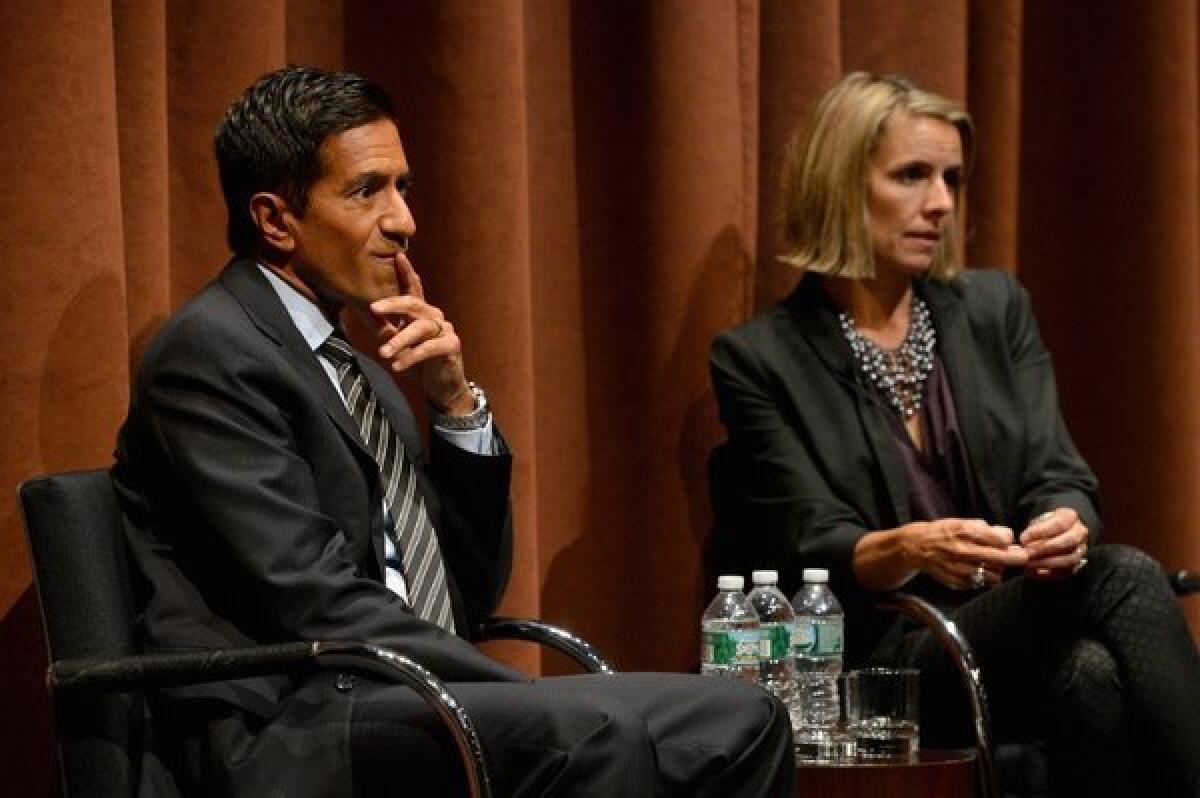Weed: CNN’s Sanjay Gupta apologizes for anti-marijuana stance

- Share via
CNN’s chief medical correspondent Dr. Sanjay Gupta says he regrets his past stance on weed. Gupta, who previously opposed legalizing marijuana, says he’s woken up and smelled the proverbial plant life.
“I apologize because I didn’t look hard enough, until now. I didn’t look far enough,” he wrote in a CNN article. “I didn’t review papers from smaller labs in other countries doing some remarkable research, and I was too dismissive of the loud chorus of legitimate patients whose symptoms improved on cannabis.”
Marijuana was made illegal after assistant Health Secretary Roger Egeberg wrote a letter in 1970, pointing to a “considerable void in our knowledge” about marijuana and that the U.S. should wait to legalize it until there was enough research to “resolve the issue.”
So marijuana was made illegal because of the lack of sound science — but, as Gupta points out, it’s hard to do research in the United States on cannabis when it’s already illegal. And though a fair amount of work is done — more than 20,000 papers just recently, Gupta noted — just 6% of the studies Gupta counted up look at the potential benefits. The rest investigate potential harm, an inherent bias that leads to a profoundly distorted view.
In any case, research outside the U.S. reveals that marijuana has been shown to be effective for medical problems from seizures to neuropathic pain, said Gupta, who is using his research in a documentary called “Weed,” which airs Sunday at 5 p.m. PDT on CNN.
And yet, doctors instead prescribe drugs such as morphine and oxycodone for issues like neuropathic pain, many of which have been shown to to be less than effective and — as a Times series on prescription drug deaths points out — addictive and deadly.
“It is irresponsible not to provide the best care we can as a medical community,” Gupta wrote, “care that could involve marijuana.”
ALSO:
Prescription deaths: Legal drugs, deadly outcomesNIH gives Henrietta Lacks’ immortal cells new protections







